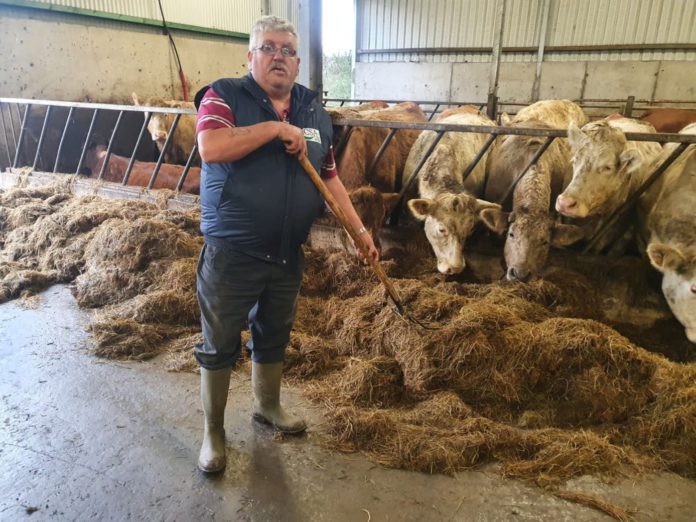The CAP consultation process caused “uproar” at the ICSA’s national executive meeting this week.
That is according to ICSA president, Dermot Kelleher, who said there is “a lot of anger with the lack of genuine consultation” with farm groups around CAP.
Speaking about the CAP consultation process, he said:
“As a result, what we are witnessing is a CAP reform by decree. Farmers have not been listened to, and the minister’s mart tour has fooled nobody,” he said.
Kelleher said ICSA members and national executive members, in particular, have worked “tirelessly” to devise a set of CAP proposals that would “benefit all sectors”.
He explained that the cornerstone of ICSA’s proposal is to avail of the option not to utilise CRISS.
“We have shown that the CRISS method of redistributive income support does not work in an Irish context.”
“It fails in its stated objective of redistributing funds to those who need it the most, or those who are contributing most to the CAP objectives.”
“A far better solution is to use those funds to deliver coupled payments on suckler cows and breeding ewes.”
“It is in the minister’s remit to do this; he does not have to implement CRISS.”
The farm group has demonstrated how a €300/head suckler payment and a €35/head ewe payment are possible. It explained that the DAFM could deliver this through a coupled payment and payments from suckler and sheep schemes.
“This proposal provides a workable mechanism that succeeds in directing payments towards the lower-income sectors in a way that CRISS does not.”
Reducing average slaughter age
Kelleher believes the group’s proposed Beef Carbon Efficiency Programme for the beef sector “makes total sense”.
“We have proposed a CAP payment of up to €100/head for prime beef finished earlier.”
“The minister himself is talking about reducing the age of slaughter. However, he has no comprehensive plan about how to achieve that.”
“He is mistaken if he thinks that a factory bonus would be an acceptable reward for this measure.”
Kelleher acknowledged that reducing the average slaughter age can achieve a “significant” environmental benefit. However, he said the measure requires the support of a “significant” CAP payment.
Eco schemes
Kelleher also pointed to the fact that the current proposals for the eco-scheme are “totally unworkable” for a lot of active farmers on productive land.
“The minister says he wants all farmers to be able to do their bit for the environment under the eco-scheme. But the reality is that, under the current proposals, a large proportion will be left with no option but to stay out. “
“The proposals on stocking rate and fertiliser usage are too severe. If you don’t qualify under one, you won’t qualify under the other.”
“It is not realistic to think that all farmers can effectively do without fertiliser on a large part of their grazing ground unless the plan is to slash Irish exports. On the other hand, many farmers would opt to try to reduce fertiliser but only if the target is workable.”
Benefitting over 100,000 farmers
ICSA will meet Department officials in the coming days to find a “workable” solution to the eco-scheme.
“What we are being offered at the moment won’t work, and this implies a severe cut by stealth.”
“The minister seems to forget that the eco-scheme money is being funded by a 25% cut to existing payments which farmers can’t afford to lose.”
Concluding, Kelleher stressed that the ICSA’s plan is the “only realistic way” of keeping all sectors viable given the budgetary constraints.
The farm leader claims the plan benefits the more than 100,000 lower-income suckler, beef, sheep, and tillage farmers.
“It also benefits the more profitable 18,000 dairy farmers we have by protecting, the more vulnerable sectors they rely on so heavily.”
He believes it is not too late to implement this plan. However, “the minister now has to respond to the growing farmer anger quickly”.





